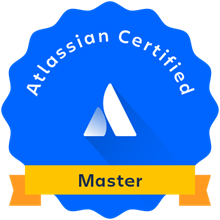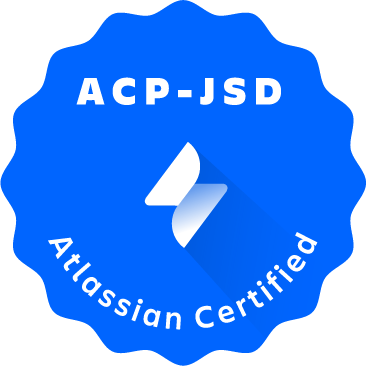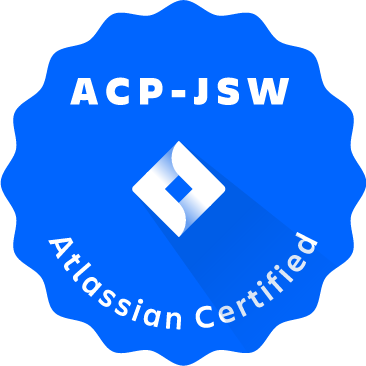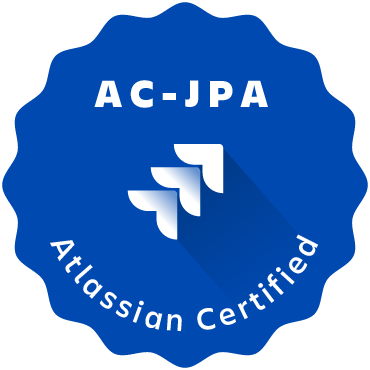汇科天下欢迎您,联系电话:18627036693
1. What prices are changing on October 2nd, 2017?
All prices for Atlassian Server products and Atlassian Server apps are changing on the 2nd of October, 2017.
2. Why are you increasing the price of all Server products?
We're increasing the price of all our Server products because we want to be able to invest in more research and development so that we can bring you even more powerful tools to enable your teams to work better.
3. Are the prices of Atlassian's Cloud products increasing?
No. Adjustments to the licensing and pricing of many Cloud products were made on July 31st, 2017, and will be remaining unchanged. Please see Future Pricing for Atlassian Cloud for more details.
4. Are the prices of Atlassian's Data Center products increasing?
No, the prices of Data Center products are staying the same.
5. Is the price of Atlassian Stack increasing?
No, the price of Atlassian Stack is staying the same.
6. Are the prices of Atlassian Enterprise License agreements increasing?
No, the prices of Atlassian Enterprise License agreements are staying the same.
7. If I don't renew my Server license right now and return to it at a later date, will I have to pay the new price?
Yes. If you decide to defer maintenance, and renew at a later date, you will be subject to the new pricing.
8. If I already have a quote with the old pricing, will you still honor it?
Yes, we'll honor all quotes with the old pricing until the quote expiration date.
What shipped in JIRA Software this year?
| Kanban backlog improvements – added support for epics and versions. |
| New sprint features – including delete, save goal, rename and close. |
| Extended project administrator permissions – project administrators can now create, edit or delete transitions, or add a status to a non-shared or non-default workflow, giving them more control over those processes and reducing requests to global admins. |
| Easier access to Versions and Components configuration actions – search, create, view, update, and delete can now be performed all in one place. |
| Dedicated Kanban backlog view – plan and prioritize with the structure of Scrum, but with the ability to move issues through development with the fluidity of Kanban. |
| Rich text editing – this is now default editing experience in JIRA Software. When you upgrade or install JIRA Software 7.3, the rich text editor will be turned on by default. |
What shipped in JIRA Core this year?
| Extended project administrator permissions – project administrators can edit their project's workflow under certain conditions. |
| Rich text editing – this is now the default editing experience in JIRA Core. Users can choose either Visual mode or Text mode, and JIRA admins can turn the feature off altogether. |
| Start JIRA with all, or a selection of apps (add-ons), disabled – helps JIRA admins troubleshoot upgrades and installations where apps may be causing issues. |
What shipped in JIRA Service Desk this year?
| Agents can customize the emails your customers receive – giving them the ability to fit your own corporate aesthetic, voice and tone. |
| Group customers into organizations to make external support easier. |
| Portal language options – customers can now select a language for their portal. |
| Updated ITIL templates – now with the latest changes to the ITIL standard. |
| Customer service templates – highly requested new template to help you serve external customers. |
| Improved email handling – helps reduce the number of unwanted tickets. |
| SLA timers are more humanly readable – displaying the time remaining in working months, weeks, and days. |
| Lots of byte sized improvements to help teams collaborate better and use JIRA Service Desk Server more intuitively. |
What shipped in Portfolio for JIRA this year?
| Program BETA improvements – improved filters for Schedule view and program configuration. |
| No more conflicts when working in parallel sprints – quickly resolve overlaps in parallel sprints by assigning the sprints to the corresponding teams, or assigning future sprints to corresponding teams. |
| Everything in the same time(zone) and place – configure the timezone of your plan so that all relevant sprints dates are in sync across your JIRA Software projects and Portfolio for JIRA plans. |
| More JQL operators – improved JQL search options for parent links and teams. |
| Two ways to share reports – share a link to embed the report view in an iFrame, or share a view only link. |
What shipped in Confluence this year?
| Collaborative editing – see who's editing the page with you, and see their changes in real time. |
| Invite people to edit with you – invite your teammates to collaborate on a page without ever leaving the editor. Invite people by name, email address, or even invite a whole group and they’ll receive a notification taking them straight into the editor. |
| Team Playbook Blueprints – everything you need for your team to get started with the Atlassian playbook. |
| Brand new language packs for Finnish, Italian, Norwegian and Romanian. |
| Revamped language packs – improved consistency, grammar, and natural flow for French, German, Russian, and Spanish translations. |
| Start Confluence with all, or a selection of apps (add-ons), disabled – helps admins troubleshoot upgrades and installations where apps may be causing issues. |
| Supported databases – added support for MySQL 5.7 and PostgreSQL 9.6. |
What shipped in Bitbucket this year?
| Create JIRA issues directly from a pull request comment – the newly created issue is displayed under the comment, just like a task would be |
| Iterative review in pull requests – when a pull request is updated, Bitbucket Server will show you what changed since you last reviewed it. |
| JIRA Software integration enhancements – including repository level shortcuts which allow teams to connect a repository to any related asset, like a JIRA project. |
| Additional security measures – the Verify Commit Signature hook rejects commits or tags not signed with a GPG key. Couple this with the Committer Verification Hook and you can rest assured that all the commits pushed to Bitbucket are valid and secure. |
| Project level administration – allows project admins to configure repositories in bulk at the project level. |
What shipped in Bamboo this year?
| Configuration as code – store your build plan configuration as code for easier automation, change tracking, validation, and much more. |
| Improved integration with AWS – the public Atlassian elastic images for Bamboo are now available in all Amazon Web Services Regions. Also, Elastic Bamboo has improved scaling by switching automatically between Availability Zones to start agents if there are no resources available in a particular zone. |
| Git LFS support – save time and space by replacing large files with points inside Git, while storing the actual content of your files on a remote server. |
| Fastlane and Xcode support – run Fastlane processes and discover Fastlane capabilities in Bamboo agents. Additionally, the XCode plugin is officially supported by Atlassian and will now be bundled with Bamboo! |
What shipped in Crowd this year?
| Support for Microsoft Azure Active Directory – Azure AD works as a synchronizable directory, which means that new information will flow on a regular basis, or whenever you request it. |
| Improved license counting – duplicated usernames no longer consume more than one license. |
| Major performance improvements in LDAP search – better experience during searches and synchronisation. |
| Supported databases – added support for Oracle 12c. |
| Additional functions have been added to the REST API. |












